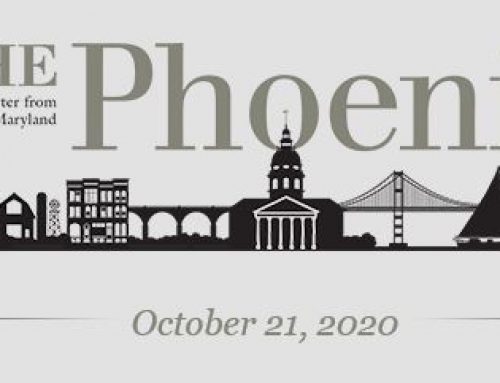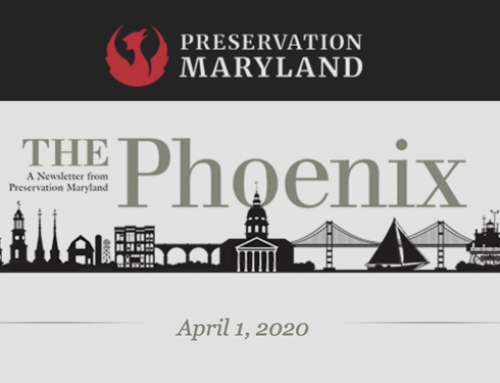Excerpt from the Frederick News-Post:
Members of the Historic Preservation Commission want to make sure a revolving fund that would help rehabilitate historic city properties is a possibility, even if the money does not come from taxes generated from the proposed downtown hotel and conference center.
That was the goal of a letter the commissioners voted Thursday to send to Frederick Mayor Michael O’Connor and the Board of Aldermen.
The one-page letter, which Chairman Dan Lawton signed on behalf of the commission, did not provide details for establishing the fund or doling out the money. It simply offered its support for a future fund.
It also referenced a letter from Preservation Maryland — a state organization with a mission to preserve historical sites — that suggested using tax money from the hotel project to establish ongoing income for the fund. Preservation Maryland’s letter, which was sent to the state Department of Housing and Community Development, said the money for the fund would ideally become part of a working agreement to preserve the history of the site as part of the hotel project.
The Historic Preservation Commission’s letter offers an alternative if that suggestion is not possible.
“Part of the proposal from Preservation Maryland suggests using monies from the hotel tax to establish ongoing income for the fund,” the letter states. “Should this source of funding not be possible now, the HPC suggests that the City of Frederick establish a similar fund with an alternative source of revenue stream.”
The commission’s letter also refers to a historic preservation tax credit program in the city that provides refunds to historic property owners for certain types of renovation, but said not all property owners are eligible. In turn, the letter encourages city officials to establish the other suggested fund to help those residents properly rehabilitate their properties to “eliminate blight, and enhance downtown Frederick.”
O’Connor said Friday that he appreciates the commission’s commitment to finding ways to maintain and rehabilitate historic properties and intends to talk with the aldermen about the request.
“It’s worth having a conversation about,” he said. “There are a lot of parts to this, especially using the hotel tax to do it. We are not the only entity in that, so it would be a much broader conversation.”
Frederick County collects hotel tax revenue, with about 97 percent of the funds passed through the Tourism Council of Frederick County.
In August 2016, the Frederick County Council narrowly voted to raise the hotel tax rate from 3 percent to 5 percent. With that approval, a plan from the Tourism Council to divert a portion of the revenue to a downtown hotel incentive program was also approved. The program allows the proposed downtown hotel and conference center to get back up to 85 percent of the hotel rental tax it pays. The stipulation was included in a memorandum of understanding that took effect with the council’s vote to increase the tax.
Tourism Council Executive Director John Fieseler explained last month that the tax funds the hotel is getting back are set to be used for public infrastructure costs the city is slated to contribute toward the project. In turn, the only way a portion of the hotel tax could be used for something else — such as the proposed fund for historic rehabilitation efforts — would be if it came out of those funds.
O’Connor also said he wants to research how many property owners take advantage of the tax credit program and how many are not eligible. Having just received the letter Friday, he said he did not have a timeline for the next steps.
As for Preservation Maryland’s letter, Executive Director Nicholas Redding said via email Friday that although he has not heard back from the Department of Housing and Community Development or the other parties involved in drafting the preservation agreement, he hopes it will be included in the final draft. He also commended the Historic Preservation Commission for its support.
“We greatly appreciate the support and vote of confidence that the Frederick Historic Preservation Commission has given our proposal for mitigating the adverse effects of constructing the downtown hotel,” the email said. “We have not heard back from the state or other parties involved in the mitigation effort – but we sincerely believe that a revolving fund designed to support the district in perpetuity is a concept worth including in the final mitigation plan.”
The department and three other parties — the city of Frederick, the Maryland Historical Trust and project developers Plamondon Hospitality Partners — must sign the final memorandum of agreement, which is still in the editing stages. The Board of Aldermen discussed the document publicly for the first time Wednesday and suggested edits. It is now headed back to the state agencies for tweaking.
Currently, the agreement includes no plans to use funds from the hotel tax to help rehabilitate historic city properties.



